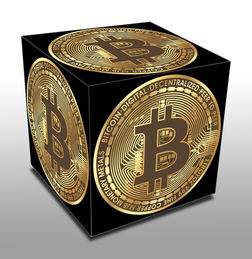How do regulated cryptocurrency platforms compare with unregulated ones?
Ever wondered whether diving into the wild west of unregulated crypto exchanges is worth the risk, or if sticking with those under strict oversight is safer? The explosion of digital assets has transformed the financial landscape—yet the debate between regulation and freedom still rages. In a world where cryptocurrencies and a myriad of other assets—from forex to indexes—are becoming the norm, understanding the differences can make or break your investment game.

The Power of Regulation: Security and Trust
When you’re trading on a regulated crypto platform, it’s like dealing with a bank. These platforms are overseen by financial authorities, which means they have to follow strict rules about transparency, security, and customer protection. Think of it as a safety net — your funds are segregated, and theres often insurance in place if something goes sideways. Take Coinbase or Kraken, for example—they’re regulated entities that regularly undergo audits, making them a safer choice for many traders.
Beyond the security, regulation can lend confidence. It reduces the likelihood of fraud, manipulative practices, or outright scams that often lurk in the shadows of unregulated markets. However, the flip side might be limited access to certain services or assets, due to compliance constraints. Plus, regulatory environments can shift, adding an unpredictable element to the trading landscape.
Then there are unregulated platforms—think of them as the frontier towns of the crypto world. They often offer more innovative features, wider asset selections, or higher leverage options because they don’t face the same oversight. For some traders, this means more flexibility, less red tape, and potentially bigger gains (or losses). Remember Mt. Gox? It was once a giant in the space and left a trail of lessons about what can go wrong without proper regulation.
But without oversight, risks ramp up. Security lapses are more common, customer funds might not be protected, and scams are more frequent—especially with the rise of decentralized exchanges (DEXs) and peer-to-peer platforms. If you’re not careful, it’s easy to get caught in a situation where your assets simply vanish.
The Future of Digital Asset Trading
Looking ahead, the industry’s shifting toward a hybrid model—blending regulation with innovative tech—seems promising. Concepts like decentralized finance (DeFi) are opening new frontiers but come with their unique hurdles, such as security vulnerabilities in smart contracts and navigating an evolving regulatory landscape.
Advanced tools like AI-powered trading algorithms and sophisticated chart analysis are increasingly integrated into both regulated and unregulated platforms. These tech enhancements can boost your strategies—whether you’re trading forex, stocks, options, or commodities—by offering real-time insights and predictive analytics. Still, leverage trading remains a double-edged sword. Using high leverage might amplify gains, but it can wipe out your account if the market moves against you—so always keep a keen eye on your risk management.
The Balance Between Decentralization and Security
Decentralized finance (DeFi) is reshaping how we think about asset management—cutting out middlemen and placing control directly in your hands. However, the lack of regulation can mean less accountability and higher exposure to hackers or faulty code. Right now, the industry dances on a fine line—embracing innovation while trying to guard against systemic flaws.
That said, the trend points toward smarter contracts, AI-driven trading, and blockchain-enabled transparency. As more institutions and retail traders get involved, the hope is that regulation and technology will walk hand-in-hand, creating a safer yet flexible environment for everyone.
The Road Ahead: Are You Ready?
If you’re considering your next move in the crypto or broader Web3 space, remember: the choice between regulated and unregulated platforms impacts your security, opportunities, and risks. Embrace technology—use advanced analysis tools, smart contracts, and AI-driven insights—but don’t forget the importance of due diligence.
Whether you’re trading currencies, stocks, or commodities, building a balanced approach—leveraging regulation for safety and the innovation of decentralization for growth—could be the way forward. The future of digital assets isn’t about choosing sides; it’s about understanding the terrain and navigating it wisely.
Not all platforms are created equal—make your move with confidence. The evolving landscape offers enormous opportunities, and smarter trading is only getting smarter.